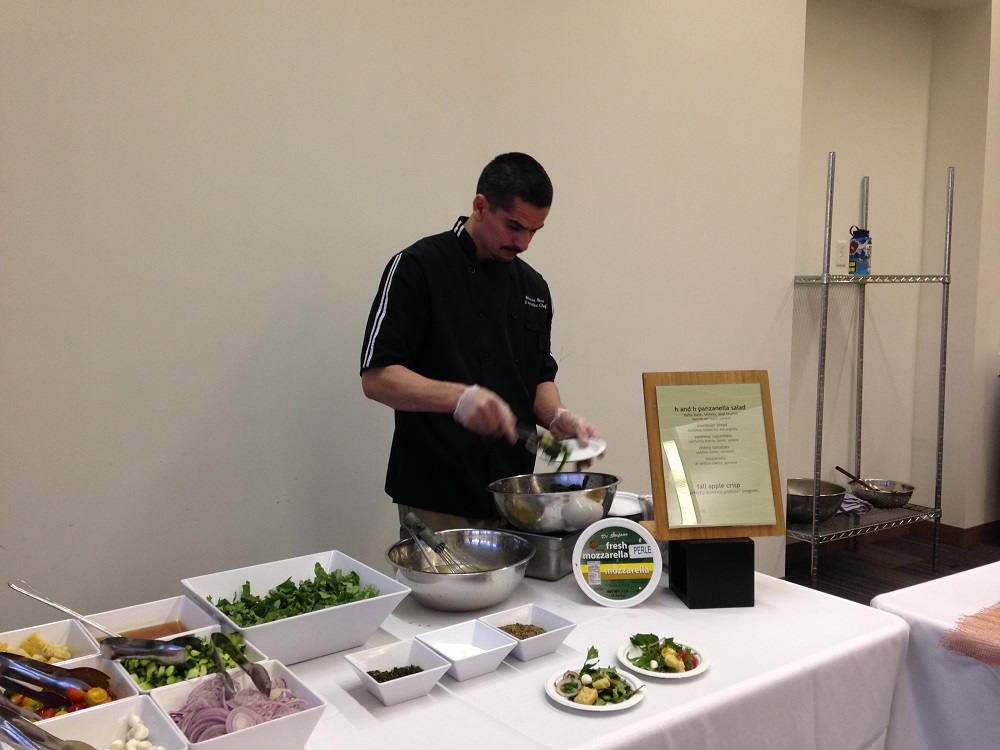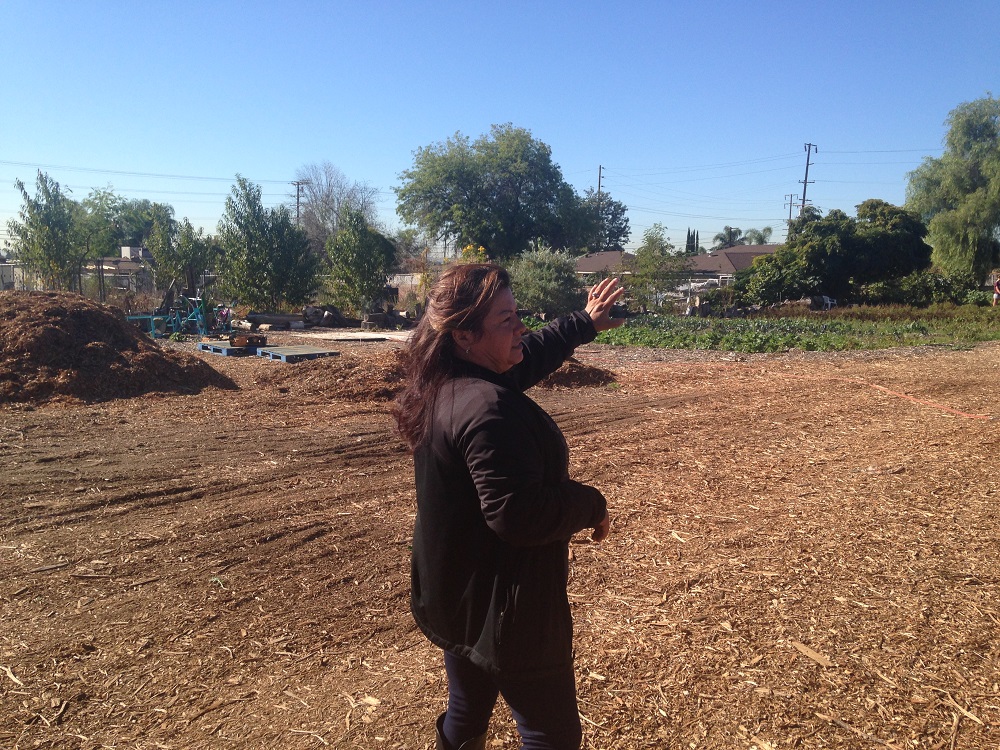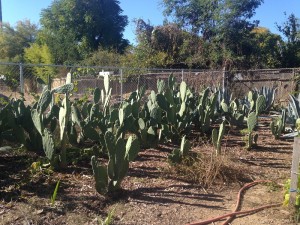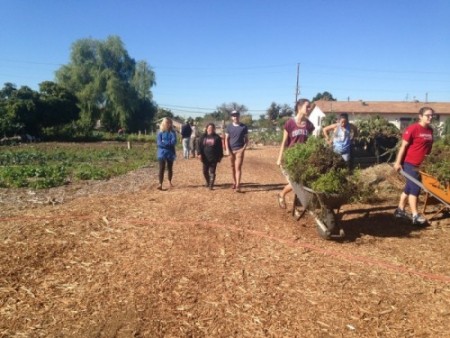Huerta del Valle: Cultivating Equity for the Community, by the Community
I travel to about 16 college campuses each year, and on each campus I talk a lot about sustainable food. At the beginning of my talks, I always ask people if they think Bon Appétit is “sustainable,” and then I ask them to answer the question when thinking about themselves as individuals.
In my opinion, it is important to view sustainability not as an end goal, but as a moving target — a process, something that is constantly pushing us to improve. There is work we’re doing, on the individual, grassroots, and institutional levels that’s moving us toward more socially and environmentally responsible practices. And it is important to get excited about these efforts. We’re a long way away from a “sustainable” food system, but that’s why it’s even more important to be motivated by what we’re achieving.

Pitzer Executive Chef Marcos Rios demonstrates how to make a salad using Farm to Fork produce.
We talked about a number of these accomplishments during a Sustainable Food Forum held at Pitzer College in Claremont, CA. The activities included a local salad demonstration by Pitzer Executive Chef Marcos Rios, a presentation about how Bon Appétit is addressing food waste, and a screening of the film Plant This Movie.
For me, one of the most inspirational parts of the event was getting to hear the story behind Huerta del Valle, a community garden in Ontario just a few miles away from Pitzer that’s helping transform a community. The forum was my first opportunity to hear Huerta’s story directly from the woman who started the project, Maria Alonso. Pitzer Fellow and Maria’s right-hand man, Arthur Levine, who helped organize the forum, acted as translator and shared some of his favorite Mexican recipes using produce grown in the garden.

Maria showing us Huerta del Valle.
I got to see Huerta firsthand and hear more of Maria’s story when a group of us visited a few days later. Back in 2010, Maria was searching for an affordable way to get organic produce to feed her son, after his doctor told her it would help address his ADHD without medication. But it turned out that medication was covered by insurance and affordable, while organic produce was prohibitively expensive. And she had to drive 10 miles to get it.
But before she settled for medication, Maria was able to bring together a small group of neighbors to grow their own produce on a tiny piece of public-school land. Soon after it began, the garden was nearly shut down, until a new, more permanent location was found under the flight path to the Ontario Airport at the edge of Bon View Park. The garden has grown tremendously over the past five years, from a tiny garden plot to a four-acre garden that grows produce for and with help from the community, selling both wholesale and retail and offering community education classes.

Cacti
About a third of the garden is reserved for about 60 families to tend their own raised bed plots for $30 per year. If they can’t afford that, they can get a plot for free. Nearly all of the community members involved in the farm are Mexican immigrants, so a wide array of traditional Mexican ingredients are grown on the farm, including cactus, which is one of the most resilient crops, growing rapidly from a piece of another cactus plant into a healthy plant using very little water. Nopales, or cactus paddles, can be used in a variety of dishes, from salads to tacos. They have been called a crop of the future, especially significant in a time of severe drought in California.
 The other two sections of the garden are for a community area that grows produce for everyone and an “intensive” section that’s used to grow produce to sell both retail and wholesale. This section is farmed by three part-time farmers who get a small portion of the profits that come from selling the produce to the Bon Appétit team at Pitzer, three restaurants, and at farmers markets. Anyone can come to the farm and buy the most affordable local organic produce around for just $1 per pound.
The other two sections of the garden are for a community area that grows produce for everyone and an “intensive” section that’s used to grow produce to sell both retail and wholesale. This section is farmed by three part-time farmers who get a small portion of the profits that come from selling the produce to the Bon Appétit team at Pitzer, three restaurants, and at farmers markets. Anyone can come to the farm and buy the most affordable local organic produce around for just $1 per pound.
And how has this project affected Maria’s son? She says that changing his eating habits has made him calmer and helped him focus. And the garden has grown to be about many more children than just her own. It is about families and students and friends, all coming together to cultivate not just organic produce but a more sustainable, more accessible, more equitable, more vibrant food system. Maria’s dream is to have one community garden planted for every mile…imagine that.